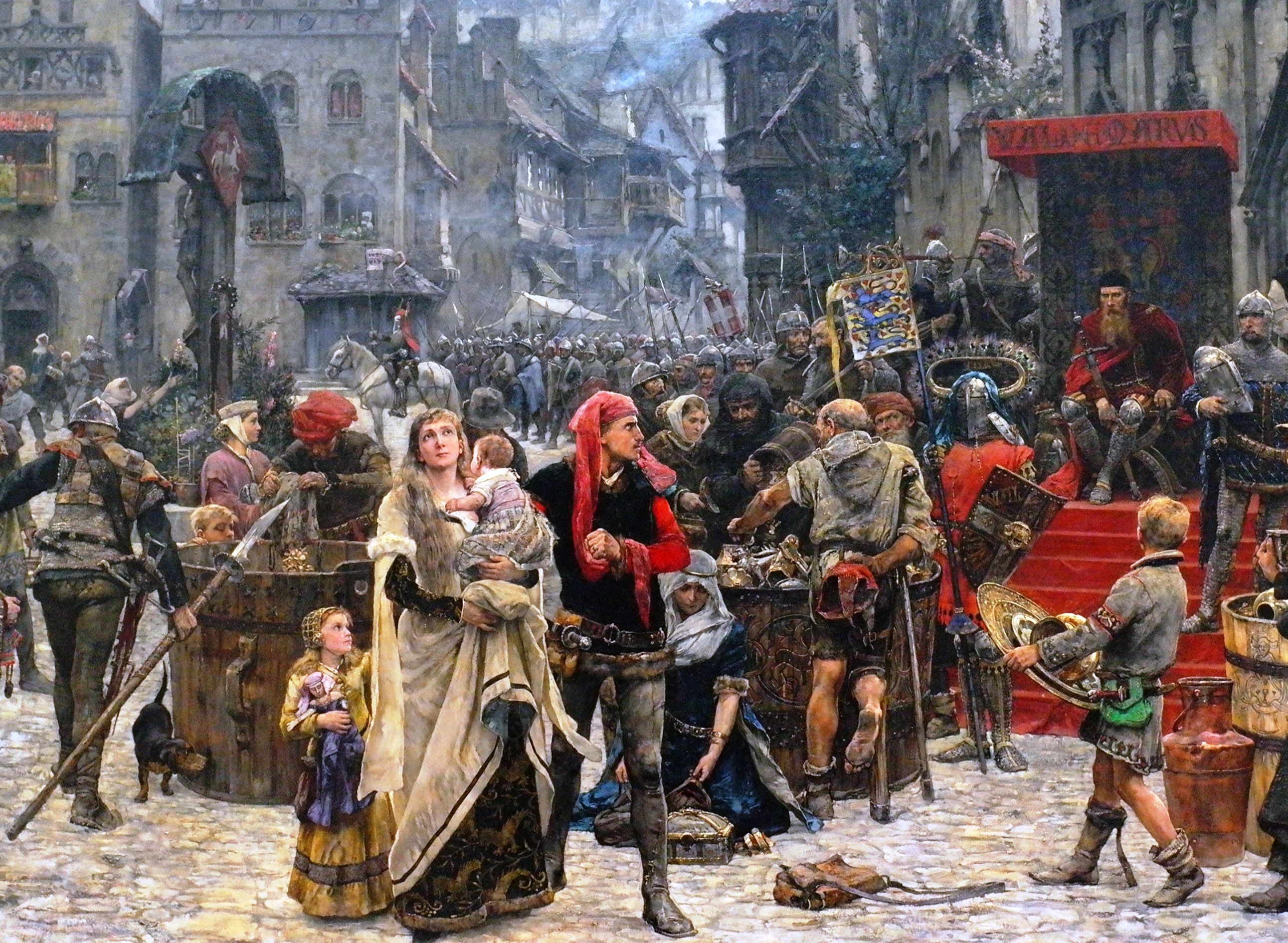History (sage study)
History is a sage study in the field of the Church, examining the past, offering an understanding of previous events, conflicts and the consequences that result from both human actions and chance events. The study primarily deals with real historical occurrences rather than elements of the supernatural.
Contents
A profound understanding of history unlocks the secrets of great civilizations, unraveling the tapestry of their rise and fall. It grants the power to communicate seamlessly with soldiers, instilling in them a renewed sense of purpose and unwavering morale in the face of adversity. It's a wellspring of knowledge that identifies the subtle nuances of weapons and armour, unveils the intricacies of religion and sheds light on the beliefs and rituals that shape cultures. In the hands of most players, the applications are sure to be indistinct, yet it matters that some players are familiar with the vast weight of events that have happened in the game world where the player characters exist.
Assigning Knowledge
| Period | Geographical Spheres | |||
|---|---|---|---|---|
| African | Asian | European | New World | |
| Ancient | 22 | |||
| Middle Ages | 15 | |||
| Modern | ||||
Due to its vast scope, characters in the game must choose to specialize in particular historical "periods" and geographic "spheres" by assigning knowledge points to those specific subjects. This creates a collection of 12 categories overall, as shown on the adjacent chart. An example is shown for the character Rachel, who has assigned her 37 points of knowledge to ancient and medieval Asian history, as shown.
Since 10 points are needed to effect one's sage abilities, Rachel is only able to do when those specific time periods and geography are relevant. She knows next to nothing about history apart from Asia, and no more than most about the modern world — but should she wish to discuss military history in reference to Asian events, she's quite able to do so.
A brief overview of the periods and geographical spheres is as follows:
Periods
- Ancient History starts with the invention of writing to approximately the mid-5th century AD, up to the fall of Zimbabwe, Rome, the Gupta Empire and the Han Dynasty, before the rise of Islam and the Mayans, along with other changes that occurred during this transition period.
- Medieval History includes the time after the ancient period, through the dark ages, the establishment of widespread empires in Africa, the middle kingdoms of China and the time of the Mongols that followed, the rise of the Aztecs and Incas, the spread of Islam and the establishment of Christianity. The time period ends at about 1500 AD, where modern history begins.
- Modern History accounts for the last 150 years, following the rise of the Hapsburgs, the commencement of settlement in the New World and elsewhere, the rise of Protestantism, the Moghuls, the decline of the Ming Dynasty and the hegemony of the Safavids and Ottomans. Includes knowledge of the slave trade, religious wars, expansion of Moscovy, and the onset of European power throughout the world.
Spheres
- African History describes the African continent, regardless of borders or present existing cultures that today dominate that region. Includes the whole Ottoman Empire Sinai Peninsula, Madagascar, the Comoros and Mascarene Islands, Socotra, Ascension and St. Helena.
- European History concentrates upon events specifically in Europe, with some slight knowledge regarding the influence of the West on other spheres.
- Asian History describes eastern culture, including the Ottomans, the Indian Subcontinent, Turkestan, southeast Asia and the East Indies, China and Japan.
- New World History describes events in the north and south continents of the Americas, from the Aleutians and Alaska to Cape Horn, as well as the Antarctic and very little regarding Oceania.
Sage Abilities
The sage abilities below are those acquired by a character through the study, according to status.
Amateur Status
- History of Empire: presents an overview of great civilizations throughout the world and throughout history.
- Military Study I: helps communicate with professional soldiers, raises morale, provides identification for magical armour and weapons.
- Religious History: provides some practical knowledge into the wax and wane of religions throughout history and insight into their strengths and weaknesses.
Authority Status
- Biography: provides details and knowledge about the significant figures of history.
- Grassroots Movement: gather a crowd in order to promote political change.
- Greater History: provides detailed knowledge of most political entities throughout the world and throughout history.
- Military Study II: provides aid in the organisation of elite troops able to function as powerful condottieries.
Expert Status
- Conspiracy: identify and investigate conspiracies.
- Cognitive History: predict events relating to great masses of people.
- Observe History: with the proper equipment, allows direct observation of historical events visually.
Sage Status
- Alternative History: provides a glimpse into what could have been, with a chance to experiment.
- Limited Time Travel: a form of travel between planes of existence, where one may move into the past or the future.
